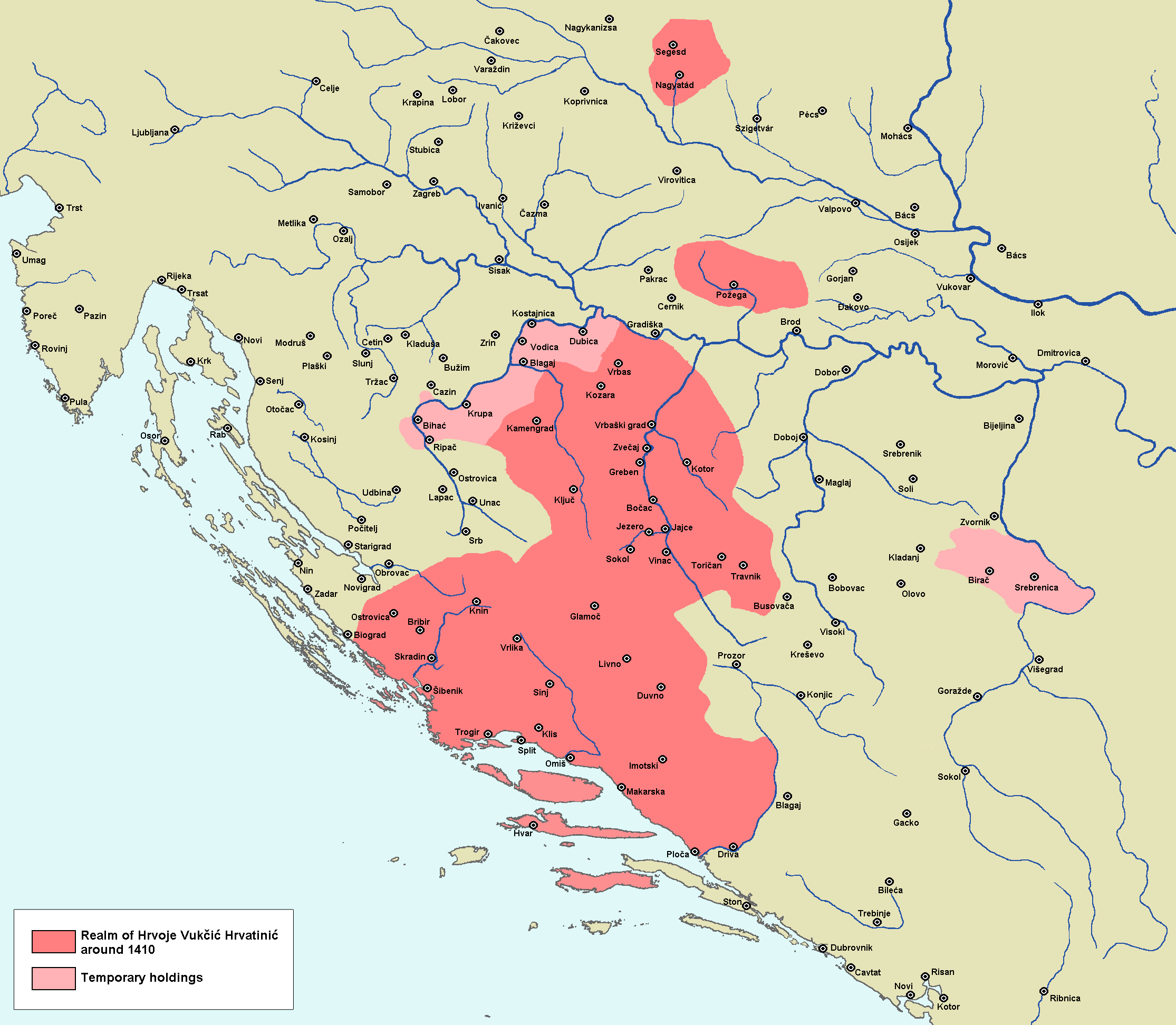|
Hrvatinić
House of Hrvatinić was a Bosnian medieval noble family that emerged in Donji Kraji county, located in today's territory of western Bosnia and Herzegovina. Principally they were vassals to Kotromanić dynasty of the Banate of Bosnia and Kingdom of Bosnia, occasionally also to the Kingdom of Hungary, changing loyalties between Hungarian kings Ladislaus of Naples and Sigismund of Luxembourg, and finally the Ottoman Empire (1472–1476). They rose to prominence in the second half of the 14th century, and attained its peak under magnate Hrvoje Vukčić Hrvatinić (1350–1416), who also held large swaths of Dalmatia and obtained title of Grand Duke of Bosnia in 1380. Its eponymous founder was Hrvatin Stjepanić ( 1299–1304), a count and holder of possession in parts of "Donji Kraji" ( en, Lower Ends) and "Zapadne Strane" ( en, "Western Sides"), and a vassal of Croatian magnate Paul I Šubić of Bribir. Hrvatin's sons was part of a coalition of Bosnian and Slavonian nobility that re ... [...More Info...] [...Related Items...] OR: [Wikipedia] [Google] [Baidu] |
Donji Kraji
Donji Kraji or Donji Krajevi (''Lower Regions'' or ''Lower Ends'', la, Partes inferiores, italic=yes, ), was a small medieval ''zemlja'' (county, župa) in today's northwestern Bosnia and Herzegovina, mostly expanding within the territory of today's Bosanska Krajina. Name and geography At first, Donji Kraji referred to a region around Ključ on the Sana. Marko Vego derives the name of Donji Kraji from the name of Roman province Lower Pannonia, or later Lower Slavonia, while Pavao Anđelić deduces that the name Donji Kraji (Lower Ends) "also has a certain relation to the rest of (highland) Bosnia", where the terms "Lower" and "End" refers to a border area that is below from the geographical point of view, and in terms of altitude and terrain configuration, in relation to the rest of Bosnia. Jelena Mrgić reject existence of "Donji Kraji Slavonije" altogether, and reject previous etymological discussions among historians, such as Klajić, Jiriček and even Vego, and derives the ... [...More Info...] [...Related Items...] OR: [Wikipedia] [Google] [Baidu] |
